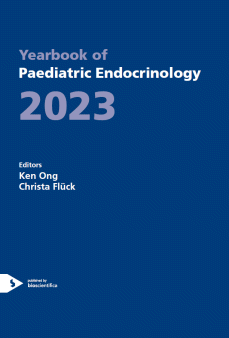9. Obesity and Weight Regulation
Obesity and Insulin/Glucose Metabolism
ey0020.9-13 | Obesity and Insulin/Glucose Metabolism | ESPEYB20
9.13. Lack of evidence for a causal role of hyperinsulinemia in the progression of obesity in children and adolescents: a longitudinal study
R Halloun , A Galderisi , S Caprio , R Weiss
ey0020.9-14 | Obesity and Insulin/Glucose Metabolism | ESPEYB20
9.14. The bad rainbow of COVID-19 time: effects on glucose metabolism in children and adolescents with obesity and overweight
C Giannini , N Polidori , F Chiarelli , A Mohn
ey0020.9-15 | Obesity and Insulin/Glucose Metabolism | ESPEYB20
9.15. Insulin and body mass index decrease serum soluble leptin receptor levels in humans
C Sommer , KG Vangberg , GH Moen , DM Evans , S Lee-Odegard , IK Blom-Hogestol , L Sletner , AK Jenum , CA Drevon , HL Gulseth , KI Birkeland




